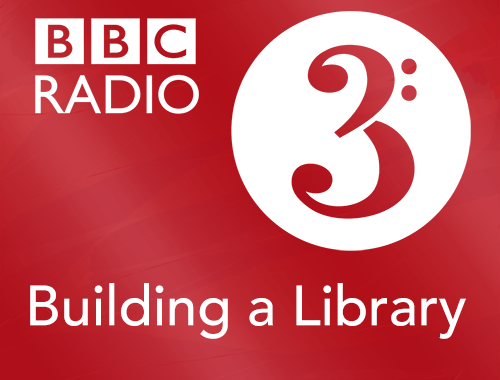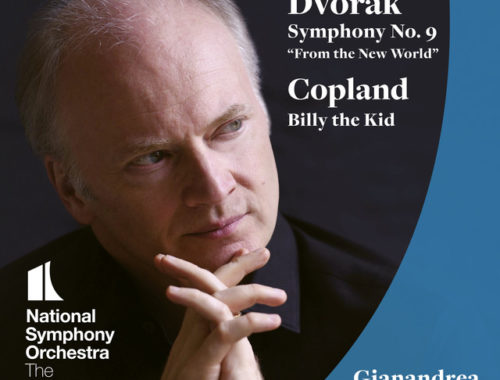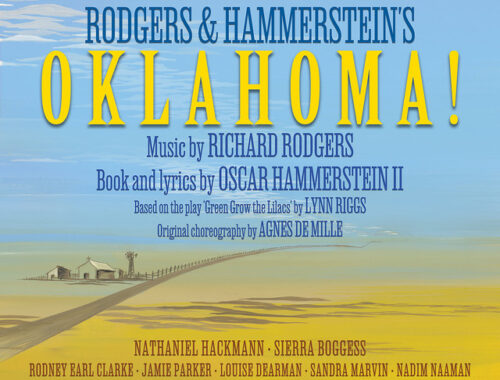Rodgers & Hammerstein’s “Carousel”, Opera North, Barbican Theatre – Review ****
The songs may be known the world over – the “Football Song” is now international folklore – but a fully staged Carousel is still something of a rarity and the sharp intake of breath which greeted the moment in which the ne’er do well Billy Bigelow turned his knife on himself or the still sharper intake when, having expired, the mysterious stranger known as “Heavenly Friend” tells him to “get up” confirmed that the first night audience for this laudable Opera North staging of the piece were seeing Rodgers and Hammerstein’s masterpiece for the first time. I remember that feeling well.
Is this the finest score ever written for the Broadway lyric stage? It was Richard Rodgers favourite and it’s mine, too, the heart of it, the inescapable ache of it, is something that cannot be put into words, even Oscar Hammerstein’s words – and goodness knows a song like “What’s the Use of Wond’rin’ ” turns simple home truths into profundities.
The first big surprise of this affecting evening is the near-acoustic sound – admittedly ungrateful with regard to the orchestra and the distinct lack of bloom emanating from the Barbican Theatre’s unfriendly pit but still a welcome reversal from the kind of synthetic over-hyping that routinely passes for “sound design” in the presentation of most musicals today. James Holmes‘ wonderfully idiomatic conducting – shapely and affectionate and free with enticing portamento in the string playing – was mindful always of the “golden age” tinta of this wonderful score and while the great set-piece that is the Carousel Waltz Prologue unfolded director Jo Davies and designer Anthony Ward revealed the first of the evening’s dramatic surprises – a coming of age for Billy Bigelow, growing up before our eyes in tandem with the evolving carousel itself.
Davies staging and Kay Shepherd’s choreography conveyed simply and beautifully the homespun flavour of the piece with Ward’s corona of sparkling lights ever present above and scrubbed wooden walls rising and falling to open our senses to the wide world beyond. There’s a marvelous moment in act two where Billy looks down from Heaven’s backyard and sees his teenage daughter Louise through the medium of a scratchy home-movie crudely projected on to the garden fence. As the fence slowly flies out, home movie gives way to actuality with Louise looking out to the rolling waves of the sea shore – a wonderful blurring of the distinction between dreams, memory, and reality.
Casting is always a challenge in Broadway shows of this era and the worry was that Opera North might err too enthusiastically towards the operatic. Michael Todd Simpson’s Billy was somewhat compromised in this respect, his singing – a strikingly dark and tremulous timbre, especially in the middle voice – somewhat at odds with his speaking where the American intonation was more pronounced. But elements of awkwardness (a little clunky with the thought processes of the great “Soliloquy”) somehow accentuated his vulnerability and he was well-matched with Katherine Manley’s radiant and truthful Julie Jordan. There was a smashing performance from Michael Rouse as Jigger Craigin, a fascinating character if ever there was one, and a cracking pairing in Sarah Tynan’s deliciously hyper and sweetly sung Carrie Pipperidge and the excellent Joseph Shovelton as her seafaring bow Enoch Snow – earthier manifestations of the Von Trapp family with their “fleet” of children ascending, of course, in height.
Nettie Fowler, the show’s eternal earth mother, has the “Football Song” and Yvonne Howard moved us with her dignity and compassion. But the genius of Rodgers and Hammerstein makes a book song not a showstopper out of it and it’s only at the climax of the evening that this choral anthem is given free rein. I loved the curtain call rendition – simple and static like a snapshot from the family album. But that’s the thing about Carousel – it’s the homespun elevated to the cosmic and it gets you every time.
You May Also Like

BBC RADIO 3 – CD REVIEW “BUILDING A LIBRARY” Saturday 8 March
14/01/2014
GRAMOPHONE Review: Copland Billy The Kid Suite / Dvořák Symphony No. 9 ‘From the New World – National Symphony Orchestra, Washington DC/Noseda
25/03/2020